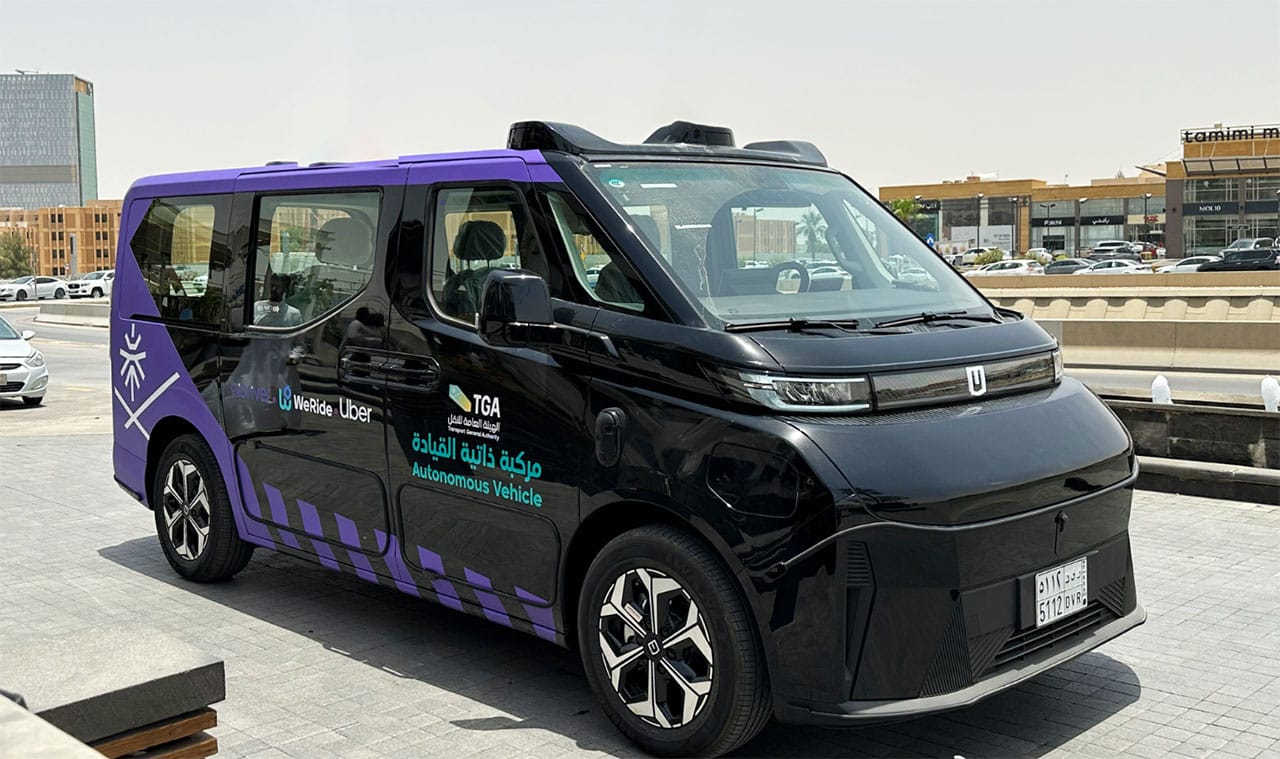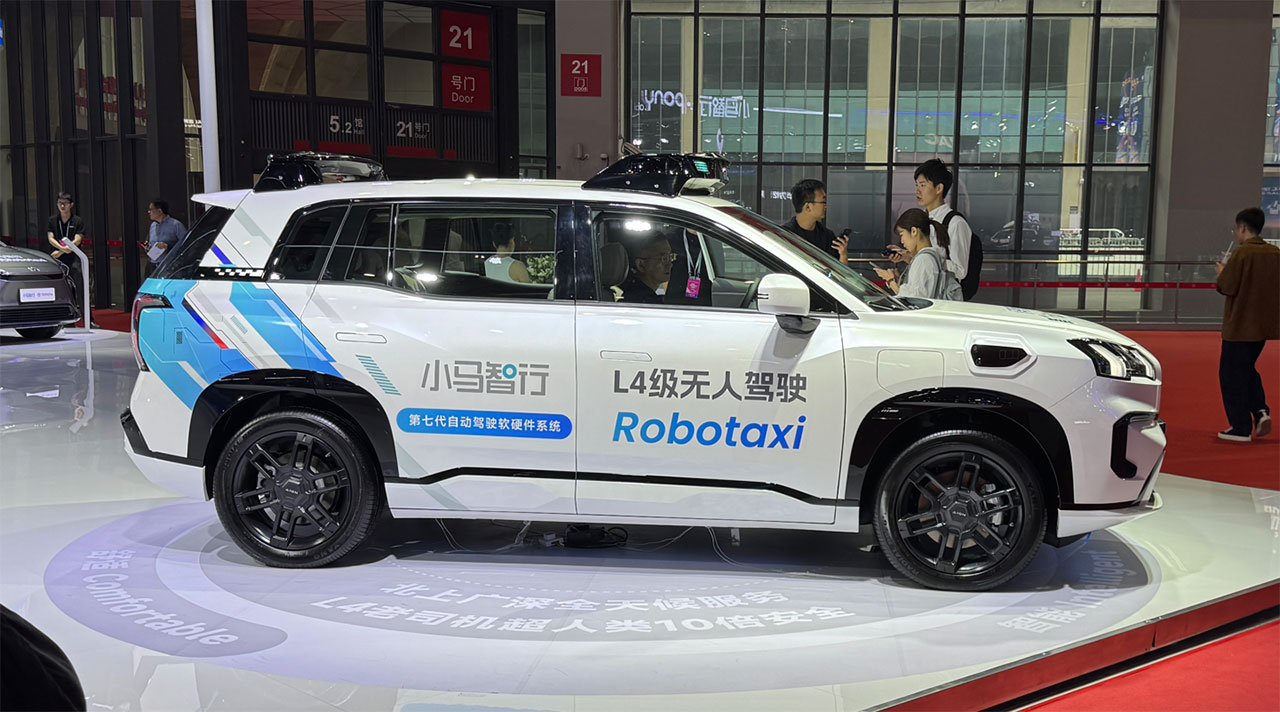
WeRide gets the green light to roll out robotaxis across Saudi Arabia, starting with a pilot in Riyadh with Uber and its local partner Ai Driver.
For details, please visit CnEVPost.

WeRide gets the green light to roll out robotaxis across Saudi Arabia, starting with a pilot in Riyadh with Uber and its local partner Ai Driver.
For details, please visit CnEVPost.

Pony AI has launched 24/7 robotaxi testing in Beijing, Guangzhou, and Shenzhen, extended from the previous hours of 7 am to 11 pm daily.
For details, please visit CnEVPost.

The first deployments are expected to take place later this year in Asia and the Middle East, using Apollo Go's sixth-generation robotaxi.
For details, please visit CnEVPost.

TrendForce predicts that China's robotaxi market will reach $44.5 billion by 2035, about 900 times its current size.
For details, please visit CnEVPost.
Regarding self-driving, Tesla hasn't yet taken a seat at the L4 poker table, said Pony.ai founder
The post Pony.ai co-founder dismisses Tesla’s Robotaxi as immature, cites lack of L4 readiness appeared first on CarNewsChina.com.

WeRide's first robotaxis will start commercial operations with safety officers and fully driverless testing in Dubai this year, with fully driverless commercial operations set to start in the first quarter of 2026.
For details, please visit CnEVPost.

WeRide will begin robotaxi pilot operations on the Uber platform in the coming months and plans to launch commercial robotaxi operations in Saudi Arabia within 2025.
For details, please visit CnEVPost.

WeRide will begin robotaxi pilot operations on the Uber platform in the coming months and plans to launch commercial robotaxi operations in Saudi Arabia within 2025.
For details, please visit CnEVPost.

Initial supervised trial runs are set to launch in 2025, followed by fully driverless operations in 2026.
For details, please visit CnEVPost.

Baidu CEO said he sees a clear path to profitability for Apollo Go.
For details, please visit CnEVPost.